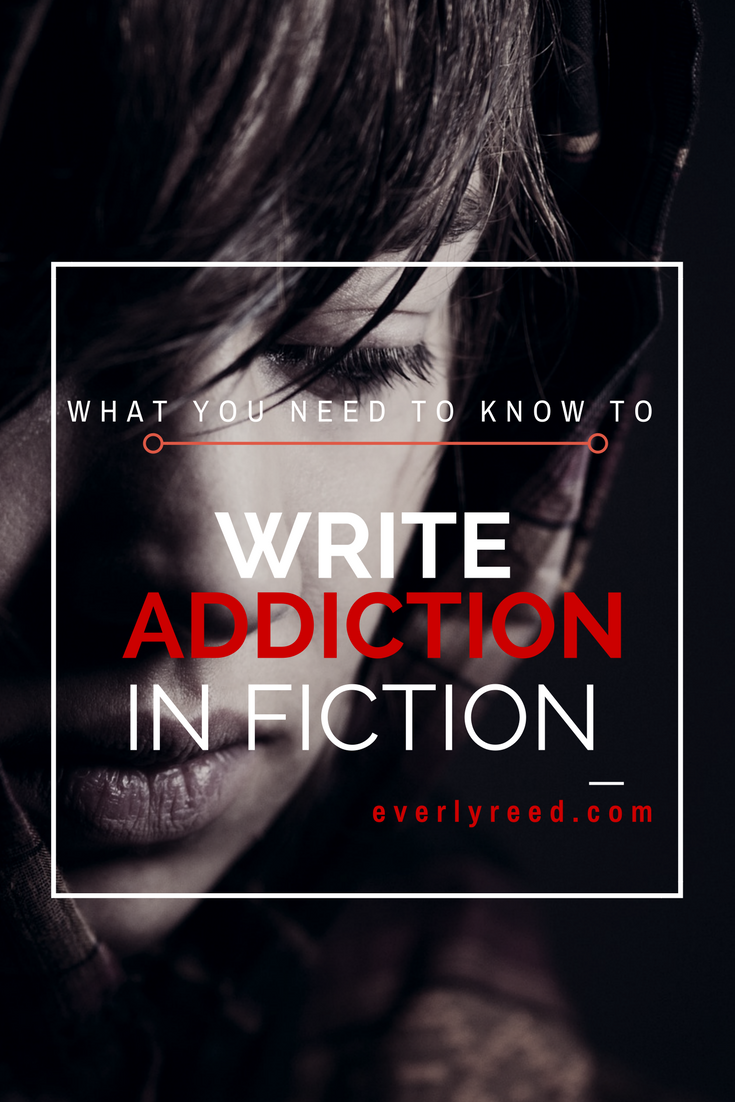What You Need To Know To Write Alcohol Addiction in Fiction
This months topic deals with alcohol addiction- what it looks like, how symptoms are commonly presented, and how a fictional character dealing with it may act.
This one has been on my mind quite a bit lately. The main character in the book that's currently consuming my daily thoughts, 50 Proof, is struggling with an addiction to alcohol. It's also a topic that permeates parts of my life, having grown up with parents that didn't always have a good relationship with alcohol.
Realistically, though, it's not too surprising for someone to have personal experience with an individual suffering from an addiction to alcohol. In my real-life job I work closely with an addictions counselor and the majority of his case load comes from individuals suffering from alcohol abuse.
Substance abuse is much more than just drinking too much or too often and it can effect your character in a variety of different ways. Read on to find out how.
Criteria & Symptoms:
In the DSM-V, alcohol addiction is listed under Substance Use Disorders (SUD) and is defined as a brain disease that is demonstrated by compulsive use of a particular substance, despite consequences that cause harm to the individual. (source)
The effects of an alcohol dependency can be long lasting, and not just the social or interpersonal ones that usually come to mind. People with SUD can lose their jobs, friends, and partners, but research shows it can even change the processes in an individuals brain, causing an impairment to judgement, memory and behaviour control. (source)
When doctors start talking about a SUD diagnosis, there are eleven indicators they use to help determine if an individual is eligible for the diagnosis, and to what extent. (source). They are:
Using larger amounts or for longer periods than intended
The desire to reduce use, but unsuccessful doing so
Excessive time spent obtaining, using, or recovering from alcohol
Strong cravings
Use results in an inability to complete tasks at work, home, school
Continued use despite it causing problems in relationships and social life
Social or recreational actives reduced or given up
Continued use in situations that are physically hazardous
Continued use despite physical or psychological problems either caused or exacerbated by alcohol
Tolerance- a need for increased amounts to reach desired effects or diminished effect with continued use
Withdrawal- experiencing the typical symptoms of withdrawal when no alcohol is available, or using alcohol to relieve or avoid withdrawal symptoms
Based on the symptoms exhibited, a person can either be diagnosed as being Mild (2-3 symptoms), Moderate (4-5 symptoms), or Severe (6+ symptoms).
Example:
In 50 Proof, Steven would be considered to have a mild SUD and is a functioning alcoholic. For him, alcohol is used as a form of self medication. He consumes far more than the daily recommended limit, however he is still able to maintain a hold over his job and other aspects of his life. But as stressors are added to his life we see him leaning on this unhealthy coping mechanism more and more. What starts off as a slow decline into a more serious stage of addiction comes to a head when he no longer finds relief in his self medication and lashes out in a violent outburst.
This is something I've witnessed before and while it may not always be a "rock-bottom" moment for everyone, and instead the beginning of a new, abusive coping mechanism, in this case it's where Steven begins to see his self medication for what it is- a divisive, unhealthy and uncontrollable addiction.
When applying SUD to your writing, it's important to remember that alcohol is classified as a depressant. When viewed on a physiological level, it acts to depress the function of the central nervous system which can work to inhibit anything from judgement and reasoning, to hearing and vision. What this can mean for your character is that when higher functioning is inhibited, other more basic tendencies tend to be exacerbated.
For example, if your character is a naturally aggressive person, the effects of alcohol can depress the functions of the brain that keep that aggression in check, creating the opportunity for your character to become a mean drunk. This same premise may be true for a variety of different personality traits: Is your character a happy go lucky kind of guy? Then maybe alcohol will magnify that, making him not at all shy about expressing his love for everyone and everything. Is your character a risk taker? Then maybe alcohol will depress his judgement making center and you'll have a dare devil on your hands. Does your character sing in the shower? Well guess what- now he's a karaoke bar star.
As with any mental illness, the finer points of alcohol addiction are unique to each individual. As long as you address the parameters above, how your character progresses through the stages of SUD and how it affects their personality are up to you!
I’ve included the sources for information used in this article and have updated my Resources page with links to some sites that talk more about alcohol addiction. This is by no means a substitute for professional advice or clinical assessment.
I'd love to hear if you're writing about any characters struggling with alcohol dependency- let me know about them in the comments!
-Everly
